Another voice in defence of GMO and the big farmers
Adelina Marini, March 18, 2011
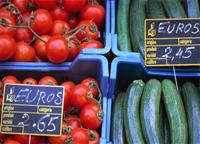 Rising prices of food and fuel. Inflation. Social unrest. Rapid growth of global population. Climate changes causing more disasters and directly hitting farm production. Growing wealth causing a rise in food demand etc. These are only a few of the major challenges ahead of mankind in the decades to come and it is difficult to forecast precisely when the cataclysm will happen. The good news is that even in the countries that up until recently fervently refused to look the truth in the eyes, it is admitted that there is a problem and a solution has to be found soon. This is most difficult in the European Union where the issue unfolds in additional dimensions: national interests, differences in the economic development and absence of options.
Rising prices of food and fuel. Inflation. Social unrest. Rapid growth of global population. Climate changes causing more disasters and directly hitting farm production. Growing wealth causing a rise in food demand etc. These are only a few of the major challenges ahead of mankind in the decades to come and it is difficult to forecast precisely when the cataclysm will happen. The good news is that even in the countries that up until recently fervently refused to look the truth in the eyes, it is admitted that there is a problem and a solution has to be found soon. This is most difficult in the European Union where the issue unfolds in additional dimensions: national interests, differences in the economic development and absence of options.
Common agricultural policy or subsidies for everyone?
It has been almost a year since the debates on the reform of the Common Agricultural Policy continue in order to adapt it to the above mentioned challenges. Similarly to former attempts to reform the policy, financed with almost the half of EU's budget, there is no significant change in the start-up positions. The agriculture ministers of Member States discussed for a third consecutive time the Communication of the European Commission for reform of CAP presented at the end of 2010 and commented in detail by euinside.
The ministers came up with conclusions on the future of CAP until 2020 [of which euinside will write about later]. In June the European Commission will table concrete proposals – exactly at the time when the debate about the structure and size of EU Financial Perspectives after 2013 will have heated up.
In such an environment the respected and influential think-tank Center for European Reform (CER) came up with an opinion on the future of CAP by Christopher Haskins - a former chairman of Northern Foods, and a member of the CER advisory board. His contribution to the discussion offers a couple of fresh ideas 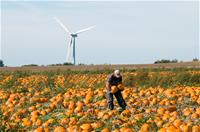 but also a few that promise another frontal clash of the short-term (possibly even medium-term) interests with long-term benefits.
but also a few that promise another frontal clash of the short-term (possibly even medium-term) interests with long-term benefits.
According to Christopher Hastings the future CAP has to commit itself to a continuous, gradual phasing-out of the single payments until 2023 because they have proved to be completely ineffective. No farm should be entitled to subsidy for more than 1,000 hectares of land. This would cap the subsidies claimed by very large landowners such as the UK Royal Family. All restrictions on production (the main one being currently the milk quotas) should be phased out, subsidies to be paid only directly to farmers as, at present, payments are frequently made to manufacturers and middlemen.
Currently, the single farm payments constitute by far the largest component of the CAP expenditure - somewhere around three quarters of the 43 billion euro CAP annual budget. Mr Hastings, however, clearly reckons that the elimination of the single farm payment could only be achieved if at the WTO, leading agricultural economies and particularly the United States and Canada would also agree to phase their direct payments to farmers out. If global food prices remain high, as many forecasters believe, then the single farm payment becomes an “irrelevant extravagance”, argues the analyst.
He offers, among other things, a proposal that is inapplicable from a political point of view by reasoning that farmers, being heavily reliant on the single farm payments, will probably ask this loss of income to be recouped. “In part it cannot be, because the existing system condones and sustains inefficient farming practice. It is up to farmers themselves to address these problems, and other reforms should help them to do so, especially the abandonment of quota restraints. Subsidised dumping of products on world markets depress prices, so if these practices were stopped, prices would rise.”
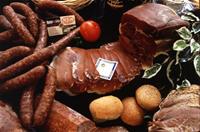 I have difficulties to imagine in which country, where farmers depend on subsidies, the government would say: get through by yourselves; it is high time to become grown-ups! This can definitely not happen in Bulgaria and will doom farmers and consumers to dissatisfaction with the results. Another proposal of Christopher Haskins is – the farmers in the new EU Member States should immediately have their subsidies levelled to those of their colleagues in the more developed Member States. Bulgaria’s Accession Treaty provides for any raising of subsidies to start only after 2013. According to the analyst, the differentiated method should be eliminated even if the overall CAP budget was to be reduced, so long as it is coupled with the phasing out of the single farm payments.
I have difficulties to imagine in which country, where farmers depend on subsidies, the government would say: get through by yourselves; it is high time to become grown-ups! This can definitely not happen in Bulgaria and will doom farmers and consumers to dissatisfaction with the results. Another proposal of Christopher Haskins is – the farmers in the new EU Member States should immediately have their subsidies levelled to those of their colleagues in the more developed Member States. Bulgaria’s Accession Treaty provides for any raising of subsidies to start only after 2013. According to the analyst, the differentiated method should be eliminated even if the overall CAP budget was to be reduced, so long as it is coupled with the phasing out of the single farm payments.
The differences in the present arrangements for the agricultural payments in EU are indeed blatant. According to the data in the analysis the EU average stands at 200 euro per hectare but in Greece the farmers receive up to 500 euro while a farmer in Latvia can count only on 100 euro per hectare.
And another politically “heretical” idea – the stimulation or, rather, the support of the rural areas to be entrusted to the national budgets as up to now the EU strategy in support of rural development has failed to provide results. In the rural communities across EU exist very different circumstances. “If they are within easy reach of thriving conurbations they should be able to benefit from such proximity. But if they are remote from alternative economic activity, there is a good case for taxpayer support”, argues Christopher Haskins.
Exactly because of this, most of this support should be provided by national governments rather than by all Member States. And once again: the CAP budget should concentrate on rural development in the newer member-states, where agrarian reform has been particularly limited. “This would effectively be a fiscal transfer from the richer to the poorer countries.”
What the CER analyst does not comment but I already hear it in my ears is – firstly – the evaluation of the absorption rates and – secondly – the actual results of that absorption. Bulgaria can serve as a good example for absorption with zero results. Here, a reform in the agricultural policy has never started and on the contrary, constant demands are being made for postponement of modernisation deadlines, closure of ineffective manufactures, support of the tobacco producers etc. Bulgaria is as well an example for preference given to quantity above quality.
The small ones to get bigger or to get out!
Christopher Haskins is extreme in more than one aspect. He states, for instance, that the small farms should either get bigger or withdraw. According to him, “without the cushion of subsidies and protectionist barriers, farmers would have an incentive to tackle the extensive inefficiencies of their industry - too many small unproductive farms, inadequate investment because of a lack of collateral, and insufficient co-operation in reducing costs and strengthening market clout. The most inefficient farmers would probably go out of business (and should receive one-off compensation if need be).But the better farmers could further expand with all the benefits of scale - more capacity to invest, increased efficiency, more resilience when times are tough. Good small farmers would also survive by continuing to diversify and develop alternative sources of income.”
Overall, Mr Haskins arguments are reasonable but the problem with “inefficiency” of small farms can be solved at a national level by creating adequate conditions for them to sell their production without being blackmailed by bigger producers or middlemen. The smaller farms are of great significance for the quality of 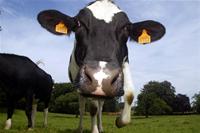 production. The reform should tackle exactly this aspect and deal in particular with the new EU Member States where - despite the subsidies - the small farms are doomed to extinction because of not having proper access to the markets (and because they can not rely on proper markets, as well).
production. The reform should tackle exactly this aspect and deal in particular with the new EU Member States where - despite the subsidies - the small farms are doomed to extinction because of not having proper access to the markets (and because they can not rely on proper markets, as well).
In his upswing for liberalisation of the European agriculture the analyst goes as far as suggesting the discontinuation of certain agricultural practices if on the market they could be compensated by imports. It all could be true if only the Doha negotiations were to be finished and the main EU demands of EU would be fulfilled – abolishment of the protectionist measures in the case when the imported goods from third countries are produced under same quality controls as in the EU. But the Doha negotiations are global negotiations and there is no need to introduce them into the internal agricultural policy of the EU. Yet, the international trade is mentioned in the communication prepared by the European Commissioner Dacian Ciolos.
GMOs to help us!
 The concerns about the rapidly growing global population and the increasing middle-class which were about to bring food shortage and pressure on food prices are not recent. Christopher Haskins is one of those who believe that the solution lies within the GMO farming. He resorts to the warning that over the next 40 years the world’s population is set to grow by about 40%, to 9 billion people. More affluent people eat more food - in particular more meat - which puts even more pressure on resources because animals are very inefficient at converting cereals into meat, writes the analyst and adds that it may be necessary to double global food production to meet this demand.
The concerns about the rapidly growing global population and the increasing middle-class which were about to bring food shortage and pressure on food prices are not recent. Christopher Haskins is one of those who believe that the solution lies within the GMO farming. He resorts to the warning that over the next 40 years the world’s population is set to grow by about 40%, to 9 billion people. More affluent people eat more food - in particular more meat - which puts even more pressure on resources because animals are very inefficient at converting cereals into meat, writes the analyst and adds that it may be necessary to double global food production to meet this demand.
Moreover, the cultivation of land absorbs substantial quantities of energy and chemicals used for pesticide protection. The crop yield from organic farms is considerably lower than from chemically-treated fields. “Responsible scientific and  technological research, including research and development of genetically modified pest-resistant, drought-resistant and salt-resistant crops, is key to addressing these problems”, Christopher Haskins believes.
technological research, including research and development of genetically modified pest-resistant, drought-resistant and salt-resistant crops, is key to addressing these problems”, Christopher Haskins believes.
It seems that the GMO defenders in EU are on their way to another victory. As a matter of fact, the topic was in the agenda of the EU Agriculture Council meeting on 17 March. And, even though we appreciate the initiative of Bulgarian European Affairs Council with the Council of Ministers to timely provide media with the actual national positions, the position Bulgaria was to express before the EU Council is - alas! – shameful. “The main topic of the Council meeting will be the proposal for a Council decision authorising the placing on the market of products containing, consisting of, or produced from genetically modified cotton, genetically modified maize and the renewal of the authorisation to place on the market existing feed produced from genetically modified maize on which Bulgaria will vote “Abstention” in accordance with the public opinion and the policy of our country as regards the genetically modified organisms (GMO).”
It is not clear how exactly the position “Abstention” reflects the public opinion and the national policy but this is Bulgaria’s position for March 17th.
It is a matter of fact that the global challenges in the next decades are severe but still, the moment has not come yet to choose between quality and quantity.
 | © Polish Embassy in Sofia
| © Polish Embassy in Sofia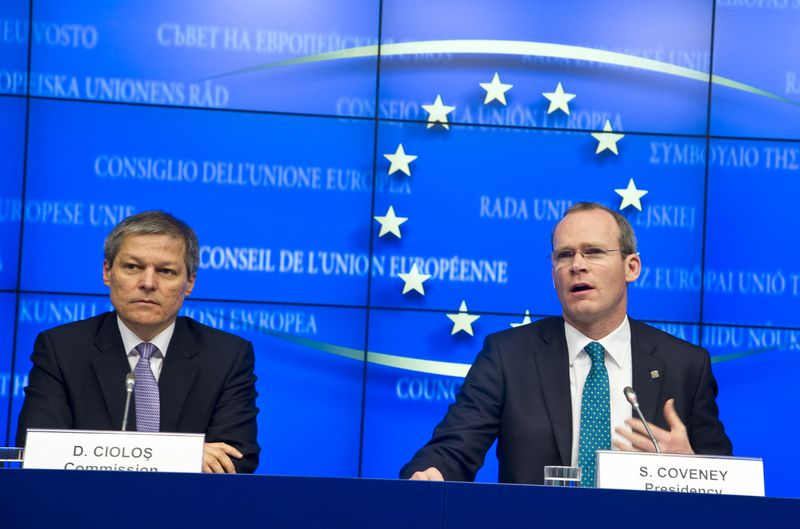 | © Council of the EU
| © Council of the EU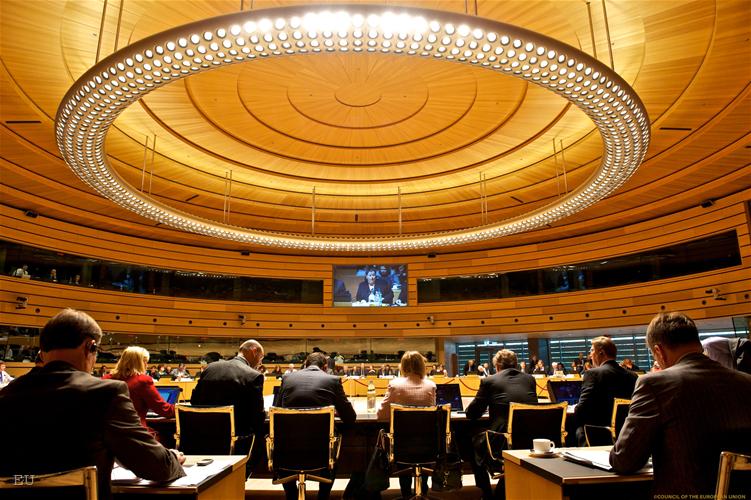 | © EU
| © EU